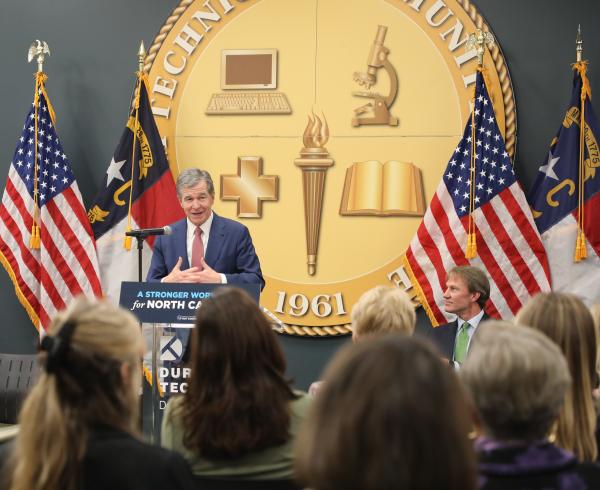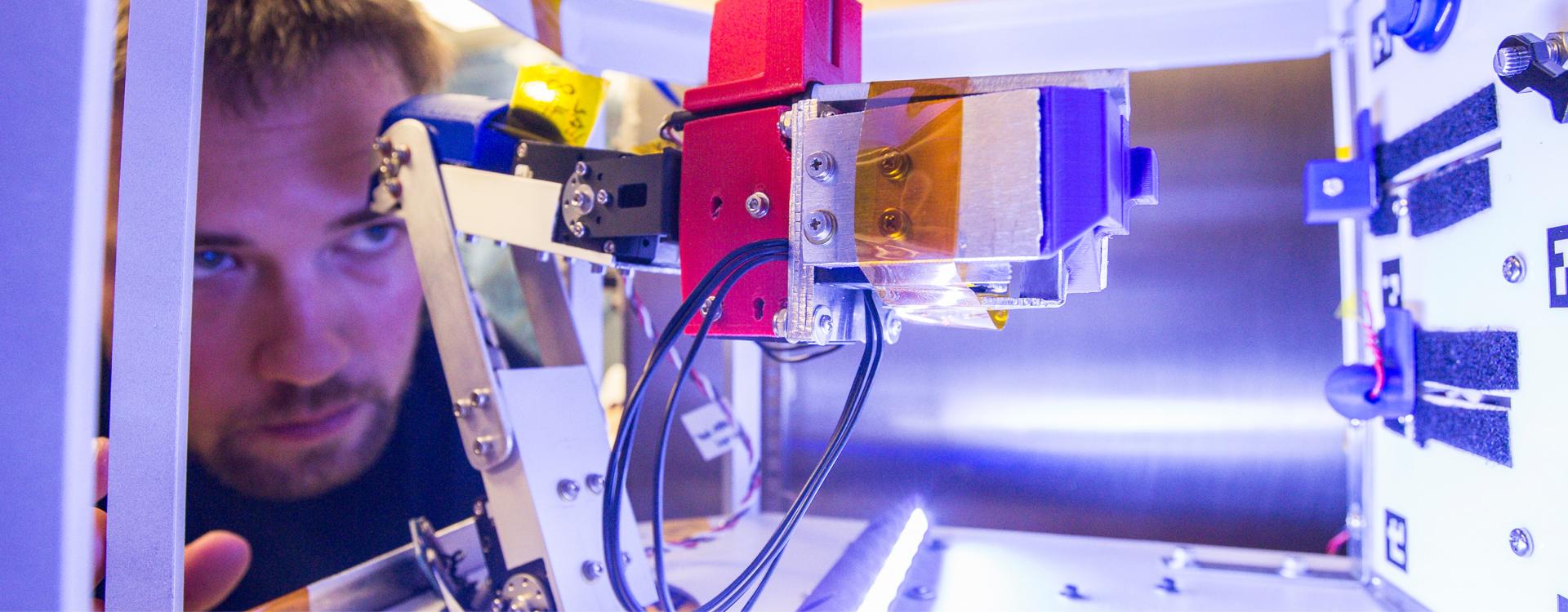Gov. Cooper highlights success of Finish Line grants for community college students
During a visit to Durham Tech on Tuesday, Dec. 17, Gov. Roy Cooper celebrated the progress made during his time in office building and strengthening North Carolina’s workforce.
The governor was joined by Durham Tech Community College President J.B. Buxton, Piedmont Triad Regional Workforce Development Board Executive Director Wendy Walker-Fox and Durham Tech student and Finish Line grant recipient Laura Harris.
“North Carolina’s community colleges are our not-so-secret weapon when it comes to building a strong workforce and economy,” Cooper said . “We’re working to make higher education more accessible so students can get the skills they need to succeed to take on the jobs of today and tomorrow.”
. “We’re working to make higher education more accessible so students can get the skills they need to succeed to take on the jobs of today and tomorrow.”
Buxton said the Finish Line grant has been a tremendous resource for Durham Tech and other community college students in North Carolina.
“The Finish Line grant has benefited our students and community by ensuring students facing financial barriers to completing their education have a resource available so they can enter the workforce or continue to a four-year institution without interruption to their studies,” he said.
Walker-Fox said the grant has also been beneficial for workforce development.
“With workforce development being a central focus, the Executive Director’s Council of the NC Association of Workforce Development Boards is proud to have partnered on the Finish Line grant initiative, which was not only integral in ensuring more people received the training that they needed, but also highlighted the existing strong collaboration between workforce development boards and community colleges,” she said. “I was happy to represent the 20 workforce development boards across the state today and share how much we appreciate Gov. Cooper for his innovative thinking and leadership that made the availability of Finish Line Grant awards possible.”
Durham Tech student Harris spoke during the governor's appearance about the personal impact the Finish Line grant had on her and her family.
“At Durham Tech Community College, the Finish Line Grant was more than just financial support for me,” she said.
The single mom of a special needs 7-year-old applied and received the grant when her car required urgent repairs that she did not have the funds to cover. The repairs, she said, "was crucial for attending classes, meeting academic obligations, and ensuring my son’s transportation to school and therapy sessions. Without this support, it would have been incredibly difficult to manage my academic and family responsibilities."
With the grant enabling her to continue her education at Durham Tech, Harris is on schedule to graduate in 2026 and will transfer to UNC-Chapel Hill, where she plans to get her bachelor's degree in psychology.
Since Cooper launched the Finish Line grants program in 2018 to help community college students who face unforeseen financial emergencies that are barriers to them completing their education, more than 16,000 Finish Line grants have been awarded, totaling $7.5 million. The program has been so successful that the legislature has made it a continuing part of the state budget.
In addition to the Finish Line grants, the Cooper administration launched:
• The Longleaf Commitment program, a $25.5 million investment to guarantee that 2021 graduating high school seniors from low- and middle-income families received at least $2,800 in federal and state grants to cover tuition and most fees at any of the state’s 58 community colleges. In November 2021, the Governor signed the bipartisan state budget into law which expanded the Longleaf Commitment Program to include 2022 high school graduates. To date, more than 27,400 students have received a Longleaf Commitment Grant totaling over $25.5 million. 77% of the grants have gone to students with family incomes less than $60,000.
* The Workforce Resilience grants for eligible community college students pursuing high-demand workforce training programs within 10 workforce pathways leading to a state or industry recognized credential, including in advanced manufacturing, automotive, IT, construction and education. To date, more than 22,500 students across the state have received Workforce Resilience Grants. The program was created by the governor redirecting $20 million in federal funding for it.

